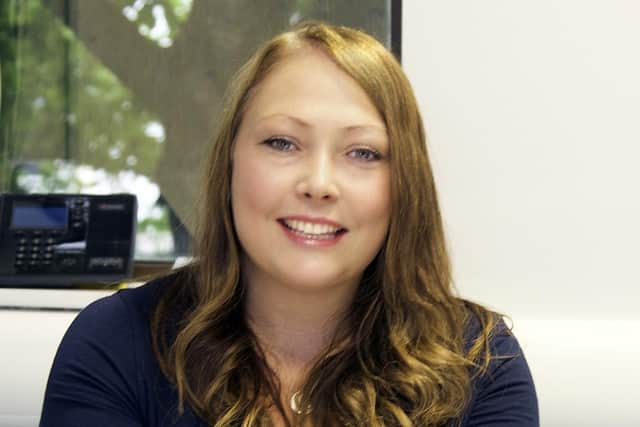Kirklees Council’s health chief ‘urges’ residents to help ease pressures on the NHS as hospitals become ‘very close to capacity’
and live on Freeview channel 276
Rachel Spencer-Henshall, director of public health at Kirklees Council, is urging residents to play their part and help ease increasing pressures on the NHS and health care services.
She said: "The NHS and health care services are there if you need them, but I am asking everyone to do what they can wherever possible to help ease the pressure.
Advertisement
Hide AdAdvertisement
Hide Ad“Our hospitals are currently very close to capacity, with some patients still being admitted with Covid-19.


“We know that having the Covid-19 vaccine provides a high level of protection against hospitalisation for all variants. We also know that the effectiveness of the vaccine wanes over time, so it is important that those eligible get their booster vaccine as soon as possible.
“If you haven't had any Covid-19 vaccinations yet, it's not too late.To find out if you are eligible for a Covid-19 booster or a free flu jab, visit nhs.uk/wintervaccinations.
“As well as being up to date with your winter vaccinations, there are some other things we can do to help our health services.
Advertisement
Hide AdAdvertisement
Hide Ad“If you need urgent medical care but it’s not an emergency, visit NHS 111 online or call NHS 111. It’s free, and they can give you urgent medical advice, 24 hours a day, seven days a week.
“You can visit your local pharmacist for advice on non-life threatening illnesses such as coughs, colds, sore throats, tummy trouble or aches and pains. They can offer clinical advice as well as over-the-counter medicines for a range of minor illnesses.
“Contact your GP for symptoms that won't go away, such as lumps, unexpected weight loss, abnormal bleeding and persistent pain.
“Please continue to look after each other and check-in on neighbours, friends and family especially during severe weather conditions.”
Advertisement
Hide AdAdvertisement
Hide AdDr James Thomas, medical director for NHS West Yorkshire Integrated Care Board said: “We currently have high numbers of people coming to A&E with flu-like symptoms.
“Please be aware that flu symptoms – cough, fever, chills, headaches and aching muscles - can hit suddenly and severely but most people don’t need hospital care or antibiotics. Self-care with rest and sleep, keeping warm, drinking plenty of fluids and taking paracetamol appropriately will help.
“Signs you need medical attention urgently with flu are if you also have sudden or increasing chest pain, difficulty breathing, especially at rest, or if you start coughing up blood.
“People can also help their local NHS services by finding out if they’re eligible for their Covid-19 booster and flu vaccines as this importantly helps keep people well”.
Advertisement
Hide AdAdvertisement
Hide AdOther things residents can do to help include, only calling 999 or visiting the A&E department if it’s very serious. For all other medical help, visit 111.nhs.uk, alternatively, call NHS 111 for free.
If you are unable to attend a GP or hospital appointment, please contact them to cancel so that it can be reallocated to another patient.
It’s vitally important that people who need urgent medical care for a life-threatening illness or injury get help immediately.
Care for life threatening or serious illness or injury will be prioritised.